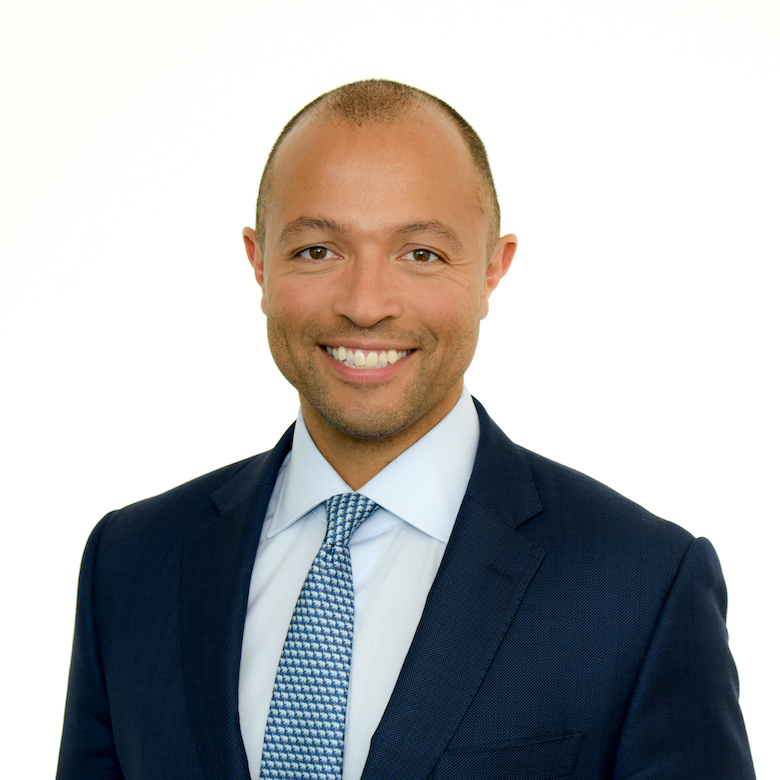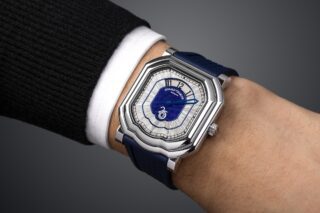This website uses cookies so that we can provide you with the best user experience possible. Cookie information is stored in your browser and performs functions such as recognising you when you return to our website and helping our team to understand which sections of the website you find most interesting and useful.
KWM managing partner Darren Roiser reveals his key ingredients to creating better business through crisis
By Darren Roiser | 9 November 2020 | Culture
King & Wood Mallesons’ Darren Roiser took the law firm from administration to a new home at 20 Fenchurch Street in just 18 months

When the European arm of international law firm King & Wood Mallesons’ (KWM) filed for administration in January 2017, observers followed an unfolding saga as the UK experienced its largest law-firm collapse. But, soon enough, it was KWM’s phenomenal turnaround that was making headlines.
Led by disputes lawyer Darren Roiser and six partners, a new KWM London was set up in just three weeks. Within 18 months, the new firm had doubled in size and moved from serviced offices into the 11th floor of 20 Fenchurch Street – better known as the Walkie Talkie building.
One of London’s youngest managing partners, Roiser has been named in the 2018 Lawyer’s Hot 100 and nominated for the 2019 Black British Business Awards for continuing to lead his practice to success. His clients range from public schools, musicians, and high net worth families to green energy start-ups, Russian oligarchs, Chinese tech giants and state-owned enterprises investing in energy and infrastructure.
Here, Roiser sheds light on how creativity and inclusivity can help create opportunity in tough times.
CHANGING THE GAME
“We, as lawyers, are often at the forefront of sudden change and we know that, in times of crisis, instability can lead to opportunity. While no one could have prepared for the events of this year, and the new reality presented by Covid-19, businesses now must face the fact that the old model may disappear and ask how they can maintain quality in their field.
“Although I’m conscious there are people and businesses who are really struggling, we have already seen examples of growth in many different industries. KWM works with a number of clients in the education sector and, while it’s true that traditional private schools may be struggling with international enrolment and more, many schools and colleges successfully pivoted to online and blended learning with very little interruption to the curriculum. It requires good governance, investment and significant effort to flip a 100-year-old model: it was quite remarkable. Likewise, we’ve seen businesses in education technology and online learning that have been busier than ever, and they are seeing more interest from investors. Elsewhere, while the retail sector is suffering in general, you have online companies like the Hut Group, Boohoo and Gymshark that are absolutely booming.
“What these businesses show is that you can’t simply sit and wait, hoping the old model will come back. Though it may seem unpalatable, often moments of crisis accelerate changes that are already happening. For example, this year, online grocery shopping rapidly increased, surpassing the industry’s five-year projection, and that will never return to pre-lockdown figures. Businesses of every sector need to fearlessly adapt to the current market.”
Our ethos is to develop a culture of energy, enthusiasm and empowerment. I push hard to ensure this is instilled in all our associates.
MINDSET FOR SUCCESS
“When we restructured KWM London in 2017, we had just three weeks during the Christmas period. While we were able to lean on our Australian and Chinese colleagues for support, we knew that everything was ultimately in our hands, and that was quite empowering: people wanted to help us, but we had to tell them exactly what we needed. We had to become the decision makers.
“This is the ethos we’ve tried to maintain in KWM London, but evolution requires having the right balance of people and approach. To use football as an example, Manchester United manager Sir Alex Ferguson would change his assistant manager every few years to evolve the team. On the other hand, Arsenal’s Arsène Wenger stuck to his philosophy of nurturing talent. Ideally, you want a balance of these extremes: you need to challenge your ideas, don’t accept ‘the way it’s always been done’, and don’t be afraid to try something different.
“Our ethos is to develop a culture of energy, enthusiasm and empowerment. I push hard to ensure this is instilled in all our associates. In today’s world, you only have to look at Old Street roundabout to see tech entrepreneurs in their 20s who have made millions, so there’s nothing stopping ambitious and entrepreneurial individuals from achieving.
“Historically, lawyers would need at least a decade under their belts before people would even start listening, but I think some clients require a young, dynamic lawyer to meet their needs. If the situation is right, then I think it’s ideal to empower our younger colleagues to take ownership of their work and initiative.”

A SPECIAL RELATIONSHIP
“When our clients experience crisis, they want an advisor they can trust, and so your relationship becomes more important than ever. KWM London is often referred to as a challenger brand but we’re part of a global brand that is the top legal firm in both Asia and Australia. In London, we’re a much smaller entity – we have 17 partners and some 25 associates – but that hybrid state means we can leverage our advantage in big global jurisdictions, while also operating as a boutique firm domestically, exploring niche opportunities.
“As a Chinese-Australian law firm, the UK’s relationship with China and Hong Kong does have a direct impact on our clients. The impact of 2020 events has seen caution kick in for corporate entities, and the shape of British investment is changing rapidly – we all have to be suitably nimble to deal with whatever that throws at us. While five years ago, [former PM] David Cameron said we were in a golden age of UK-China relations, it’s clear that there are many issues impacting that today – from Tik Tok in the US to Huawei being front page news. Yet, the nuclear sector and property developments have a vast amount of Chinese investment, which is under scrutiny. We’re in the eye of the storm but, to be clear, China is on track to be the largest superpower in the world very soon.”
MAKING A DIFFERENCE
“An important thing for our industry to consider is that there continue to be massive barriers to entry within the legal and financial services. When we look at demographics we often focus on black, Asian and minority ethnic (BAME) representation, so it’s easy to think we’re doing okay because there may be some elements of diverse representation here. But, actually, we rarely see people from lower socio-economic backgrounds breaking through in the sector, especially people from white working class or black and mixed-race Caribbean backgrounds.
“That level of social mobility is long gone and, I feel, has changed even in the last 20 years to become much harder, which is why I want to work more with schools to introduce students to how the City works. I speak in schools and we host events for students, though it’s been difficult to do as much as I’ve wanted to in 2020 – I have many more ideas for the future.
“My brother and I were the first in our family to go to university, and it’s only recently that I realised quite what that meant to people. My father’s side were bricklayers from Croydon and my father worked in the back office at Barclays; on my mother’s side, my grandfather came to the UK shortly after the Windrush. They laid the groundwork that allowed me to get a scholarship to a private school and, subsequently, to Oxford University.
“I can’t emphasise enough that no one ever achieves anything on their own. I had family members and teachers guide and inspire me at various times, and those interventions can be what push people to expand their horizons. If I can do that for a small number of students, that’s a great thing.”







